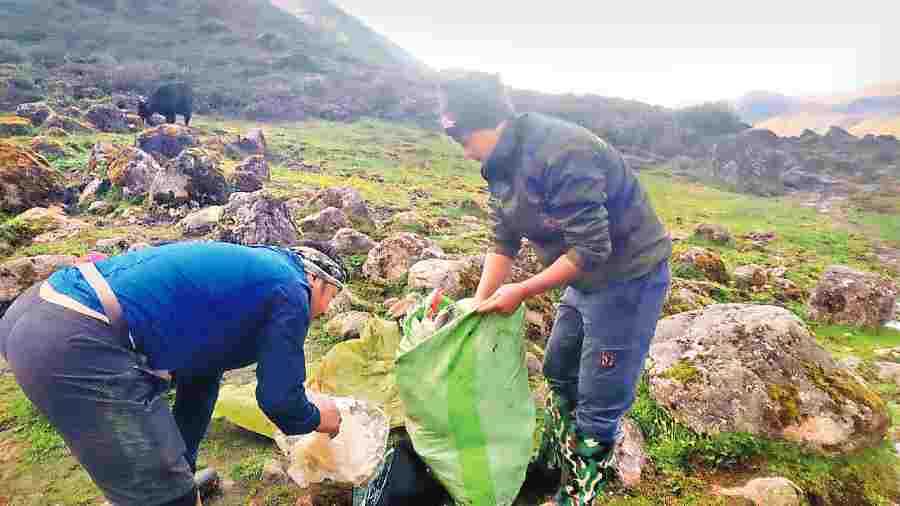The Sikkim forest department and members of the Friends Forever Sporting Club, Yuksom, jointly collected about 150km of garbage from the Dzongri-Goechala trekking trail inside the Kanchenjungha National Park during their six-day cleanliness drive from June 13 to 18.
The Kanchenjungha park, which is a Unesco World Heritage Site, has different trekking routes in the massive property that is spread across 178,400 hectares, in addition to 114,712 hectares of buffer zone in western and northern Sikkim.
Tourists in their hundreds walk the trekking trails in the park every year, but in the process also litter the pristine place with tons of garbage.The forest department carries out cleanliness drives in the park on a regular basis with the help of local people and tourism stakeholders.
This time, they were joined in the drive by the Yuksom-based club. “The 42km Dzongri-Goechala trekking route is the source of income for local people through tourism-based activities and making the route free of waste and litter is a responsibility of the local people and tourists as well,” said Sonam Chewang Bhutia, the president of the club.
The team comprised 17 members of the club, including three women, and six forest staff members, in addition to the chowkidars posted at different places along the trekking route. The drive started from and ended at Yuksom after covering Tshoka, Phedang, Dzongri, Kokchurung, Thangsing, and Lamuney, the end of the trail situated at an altitude of 4,300 metres (14,107 feet) above sea level.
“The team collected 18 sacks full of garbage with each weighing about 8kg. The drive was funded by our department and the club provided the volunteers. They were given food and accommodated at trekkers’ huts along the route. We also provided them with yaks to carry the load,” Tenzing Bhutia, the officer of park’s Yuksom range, told The Telegraph.
Located at an altitude ranging from 1,800m to 8,600m, the park, which is a biosphere reserve, was established in 1977 and expanded in 1997. It was accorded the World Heritage Site status by Unesco in 2016. Plains, valleys, lakes, glaciers and snow-capped mountains, including Kanchenjungha, the third highest peak in the work, cover the park.The Yuksom range officer said the cleanliness drive was carried out in the monsoon because very few trekkers went during that time.











